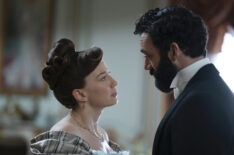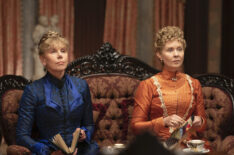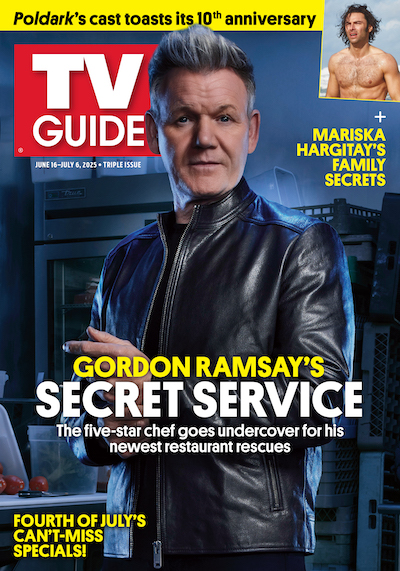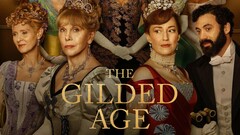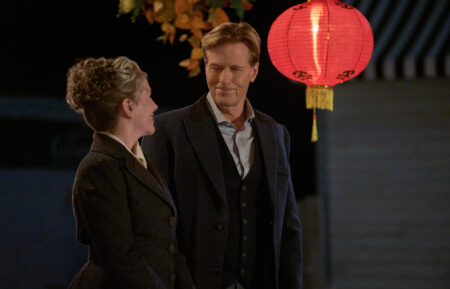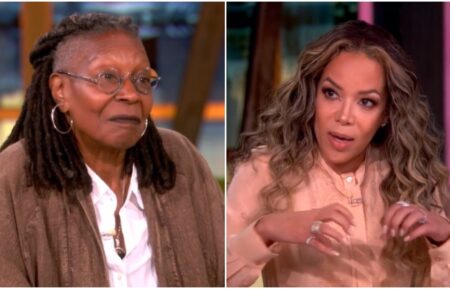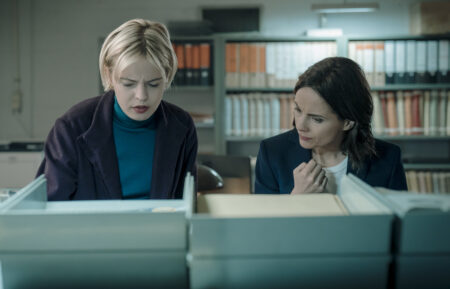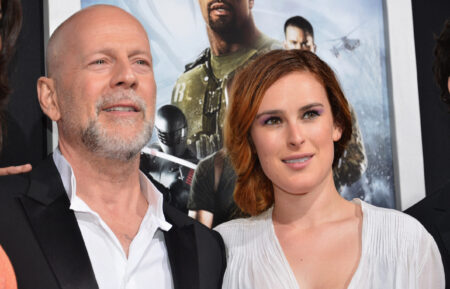‘The Gilded Age’: Denée Benton on the Importance of Peggy Scott
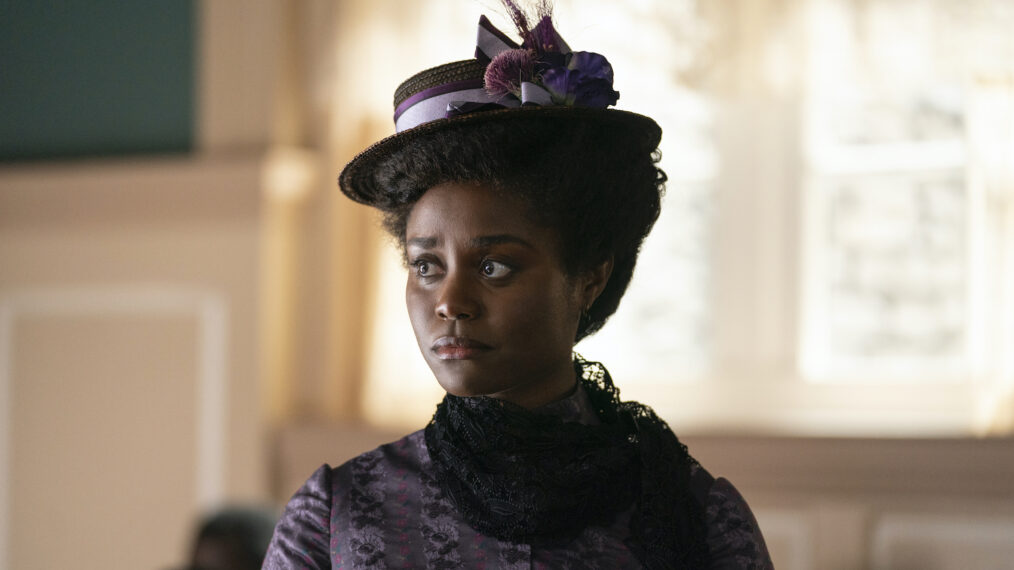
Q&A
Denée Benton‘s Peggy Scott is one of the most necessary characters in The Gilded Age. Her presence brings the experiences of Black women in the 1800s to the screen in a way not often seen, giving viewers an important education, whether they realize it or not.
In Season 1, Peggy pursued her writing career and applied her craft to political journalism — a move her father, Arthur Scott (John Douglas Thompson), thinks a waste and somehow harmful to continuing their family’s legacy among the Black elite of the time. The Gilded Age Season 2 will dive deeper into the rich world of Brooklyn’s growing wealthy Black community and show viewers Peggy’s next steps after learning her child lives.
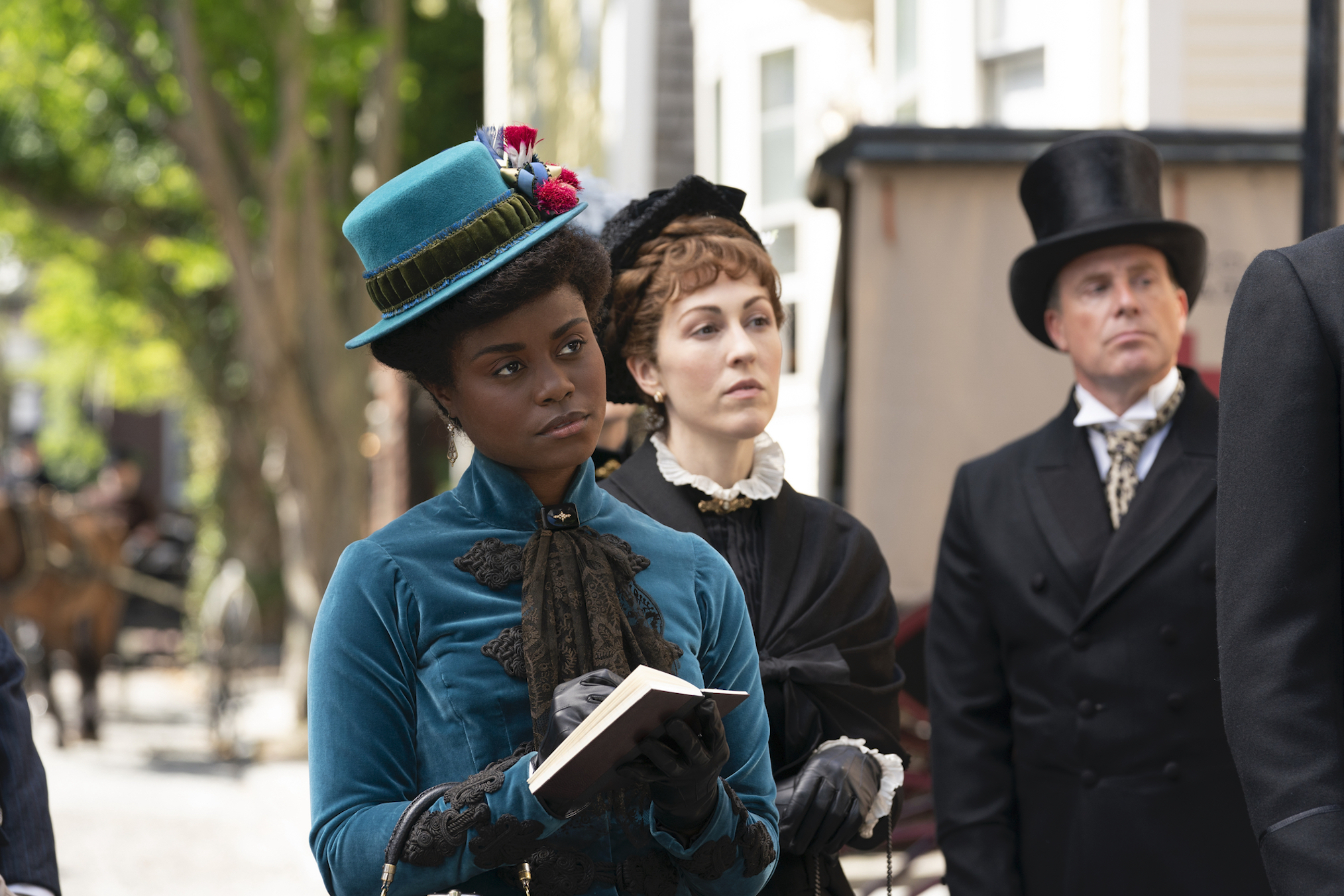
Alison Cohen Rosa/HBO
For TV Insider, Benton breaks down the importance of Peggy’s presence in the HBO period drama and the part she played in bringing Black women onto the creative team to tell these stories.
The show is high camp. Does it ever feel challenging to make that seem natural?
Denée Benton: Peggy gets this really cool opportunity to be the grounded energy of the show and to be going through really specifically human things that many of us can still relate to today. I feel like sometimes Peggy’s little looks to the side moments, it’s almost like, “Are you guys watching this too? ‘Cause this is crazy.”
She’s kind of like a palette cleanser.
Yeah, like, “Ah, yes! Someone I recognize.” [Laughs]
Agnes van Rhijn being so stubborn and set in her ways makes it almost surprising that she’d be supportive of Peggy’s career. What’s the most interesting aspect of bringing that dynamic to the screen with Christine Baranski?
I think Agnes has respect for people who deal wisely with the cards they’ve been dealt, and I don’t think we can forget the racial dynamic between them. She doesn’t expect the same things of Peggy that she expects of Marian. Peggy’s blackness makes it so Agnes is able to feel less attacked by the way Peggy presents to the world, as long as it doesn’t come back on her.
It’s this interesting balance of mutual respect that surprises the both of them and also this way in which Peggy isn’t supposed to aspire to the same level of society that Gladys [Russell] and Marian are supposed to. It’s a little bit of blindness and extra sight.
Christine previously told us she thinks Agnes admires Peggy almost more than she admires and respects Marian, her niece. What would you say to that?
I agree, especially when Agnes finds out Peggy’s whole story and sees how she conducts herself in this household. I think Julian [Fellowes] and Sonja [Warfield] were really smart in writing in the history that Agnes’ family had with the Institute for Colored Youth, where Peggy went to school.
Agnes likes everyone to do the most with the role they’ve been given, and she thinks Peggy is someone who’s doing that. I think Agnes surprises herself, too, with how much she comes to admire and respect Peggy. It’s a really cool dimension that they’ve added to her.
Could that create tension between Peggy and Marian moving forward?
Louisa [Jacobson] and I talked about that a lot, the kind of way that Agnes can look at Peggy with a different kind of pride than she looks at Marian with. What’s really interesting about them is, Marian admires — and maybe almost envies — Peggy’s ability to be able to go out into the world and be this professional working woman, and then Peggy always gets to ground it and be like, “OK, Marian, but also don’t forget your privilege. I put myself at an exponential amount of risk that you could never imagine.”
That continued revelation between the two of them is something that shows up in Black and white friendships in 2022. To get to see that in that time period is really interesting to me.
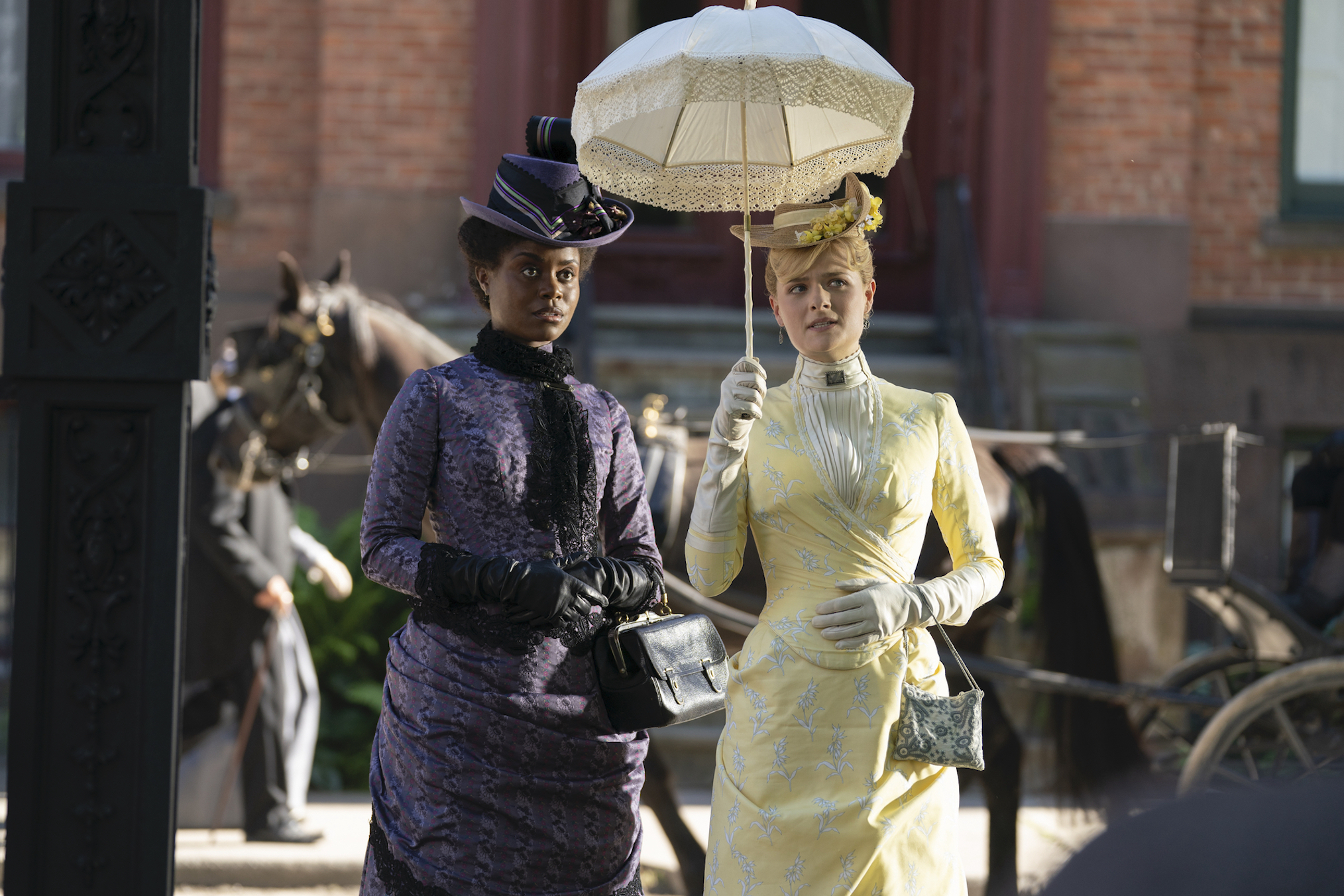
Alison Cohen Rosa/HBO
Peggy and Marian try to make their friendship beneficial for them both. What were some things you and Louisa worked on behind the scenes to bring that camaraderie and teamwork to life?
We talked a lot about what it’s like to have interracial friendship in 2022, how many missteps happen, how hard it is to truly build trust because of ignorance and racism, and how does that show up in Peggy and Marian’s relationship? One thing we really advocated for was that Marian didn’t come off like a white hero, that she was still very touched by her times. Seeing them recover from those fractures is actually how they build trust.
Seeing Peggy actually set a boundary and see it be respected is how we get to show Black and white intimacy on screen in an unharmful way that doesn’t tell a narrative that we hope to see, but that is a little more true to what it takes to build that kind of trust. That’s one of the most interesting things to me about these two women who also relate to each other because they’re trying to break out in a society that has really specific rules for them. Neither of them really belong to the world that they’ve been fully thrust into. It was something that we talked about a lot.
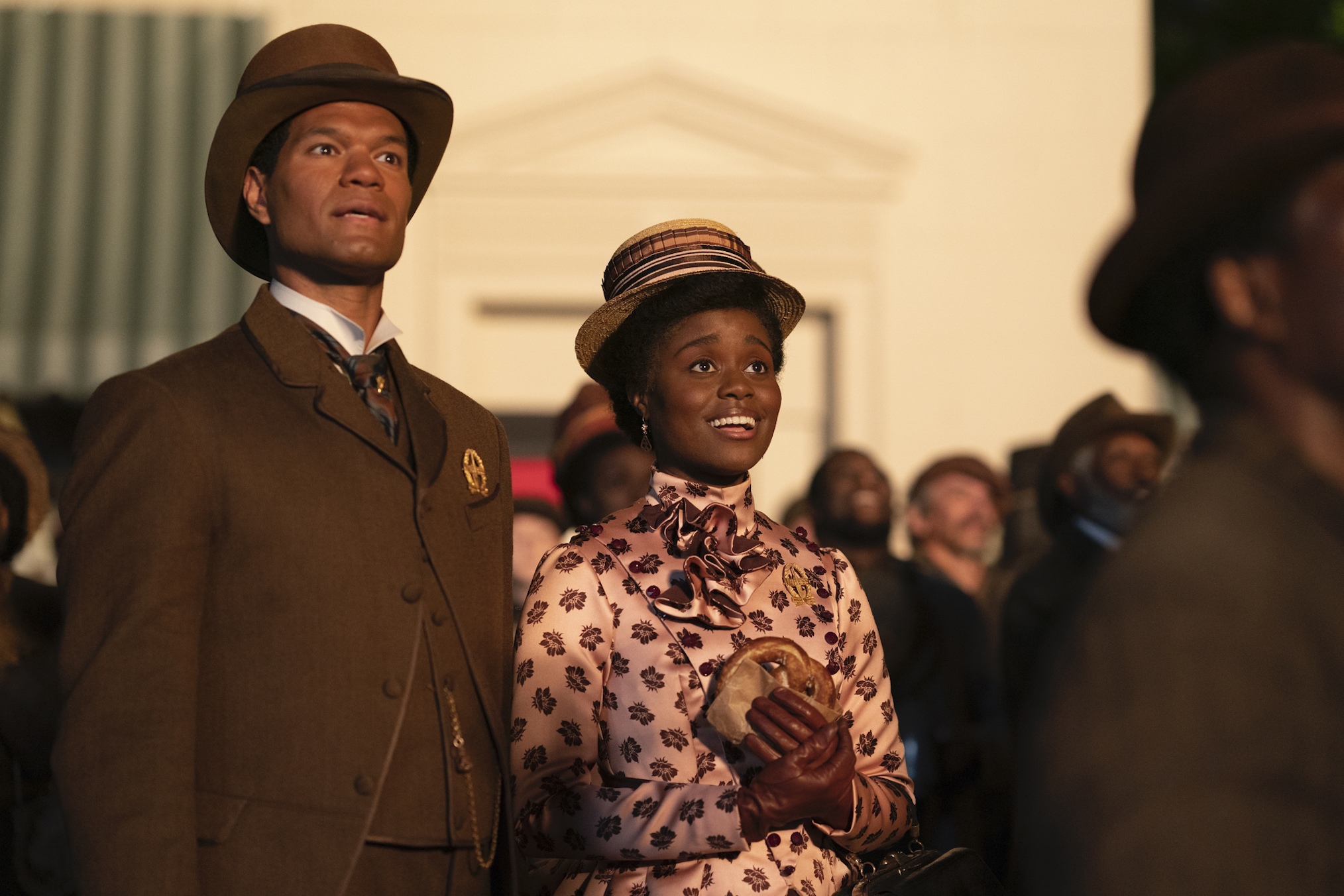
Alison Cohen Rosa/HBO
You’re leading the representation of previously untold stories about Black women in this time period. Do you have any part in how that story gets told?
It was definitely a process, and I really challenged myself to use my voice when I had thoughts or opinions about the way the story was developing from the day I got cast to the day we started filming. Dr. Erica Dunbar was an invaluable part of that process. We would have meetings with Julian and Michael [Engler] to talk about the way Peggy was developing and share ideas like, “Can we add more costumes here? What if she worked for a Black publishing office? What if these things happen?”
The part I felt the most proud of was the fact that there’s this open line of communication is amazing, but what would it look like to have an infrastructure of Black women added to this creative team? Having Dr. Dunbar brought on not just as a consultant, but as a co-executive producer; Salli [Richardson] not just as a director, but an executive producer; Sonja [Warfield] added to the writing team and being a co-EP.
As an actor, I’m so glad my voice gets to be heard, but also as an actor this is adding extra labor that I haven’t been asked to do. So what does it mean to also honor the extra labor that Black women tend to do in many spaces, and to let me focus on my practice as an actor, and to set up the infrastructures for empowered voices to get to influence story?
That was the arc of that collaboration, and now going into Season 2 is exciting because all of those conversations get to happen on the front end instead of after the fact. We’re already having all of these points of view in the inception of these thoughts.
We’re going to see more about the Black elite of the Gilded Age in Season 2. What can you tease about what to expect from that?
We get to really see Peggy develop more of her political voice and the way that community organizing was already happening and was really led by many Black women in New York at that time. We get to be introduced to true to life Black historical figures. In addition to T. Thomas Fortune, we get to meet some other major voices from that time and get to see how Peggy’s affected. To see her continue to learn is really exciting.
What was the most appealing aspect of this series when you were first approached with it?
Peggy, the fact that she felt like a spiritual ancestor I didn’t know I had. I’ve played a lot of women from the 19th century in my 20s, and they were all white women. I felt like, “OK, I’ve gotten to play these aristocrats. I’ve gotten to play characters that weren’t originally intended for me. But I know there are Black women who have this story and align with the identity praxis that me, Denée, walked through in this life.”
To get to see Peggy in the 1800s have a story that felt very similar to mine was a gift beyond measure. I was like, “Oh, I have to give this my all. This was made for me. I am her, she is me.”
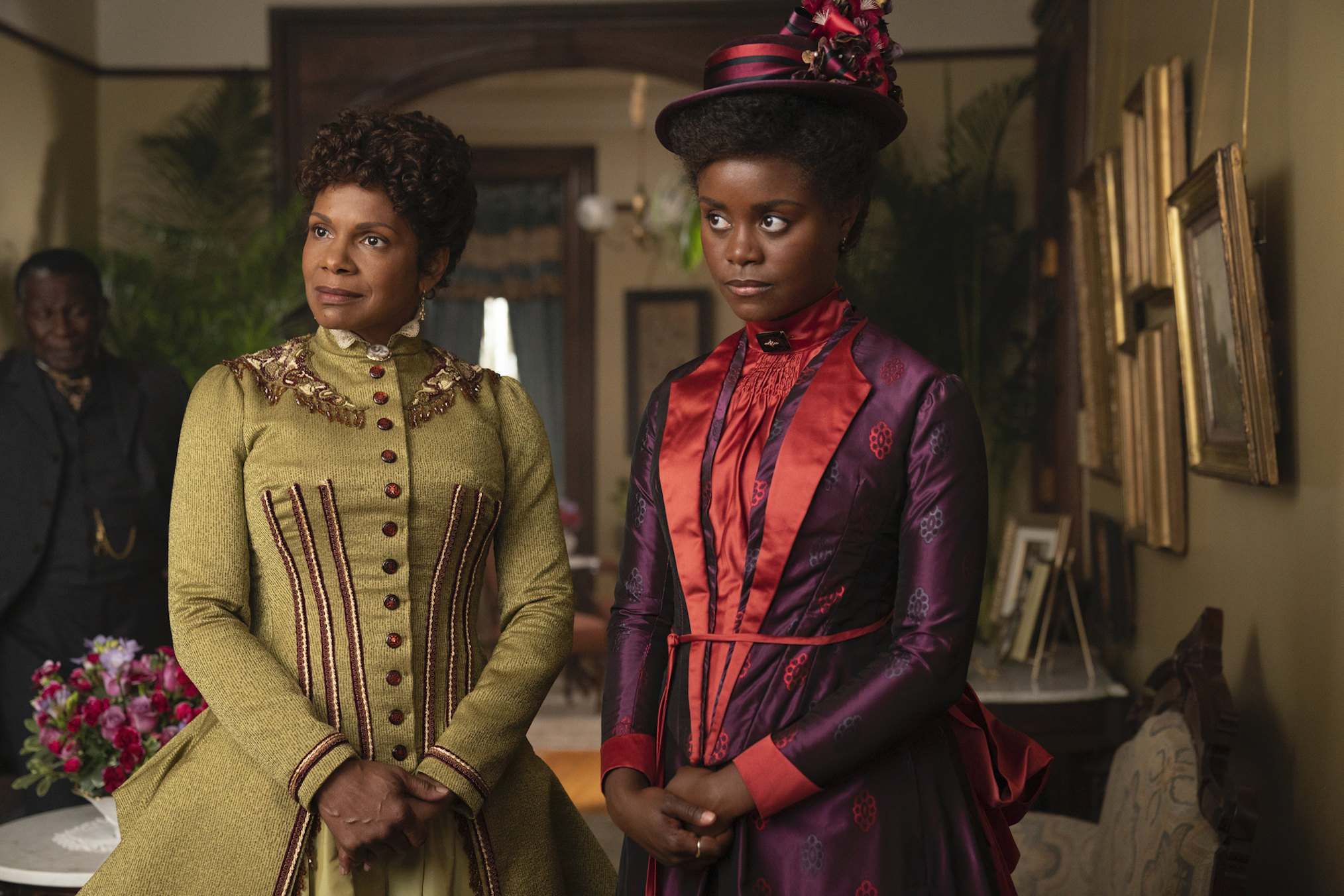
Alison Cohen Rosa/HBO
What aspects of yourself did you bring into Peggy that weren’t necessarily on the page?
I think the nuanced relationship with family. To be like, I deal with white supremacy in the world, but I deal with patriarchy at home, and how do we navigate that and her finding her voice? Being a professional Black woman who navigates white spaces and the particular tightrope of that and also trying to hold onto your authenticity at the same time. There were ways that I didn’t have to dig that deep to connect to what Peggy was navigating.
Speaking of her family, Peggy got quite the bombshell at the end of Season 1. I imagine she’s devastated, but also very driven to find her child. What’s her mindset at the onset of Season 2 given all of this?
All I can say is that we definitely get some answers.
What was it like to create those scenes with her family and portray that heartbreak in response to what her father did?
John Douglas Thompson and Audra [McDonald], it’s like a master class working with them. They’re such incredible actors. I think we all understood the nuance of a decision like that at a time like that. John did this incredible job where he doesn’t seem like a villain. There’s a devastation to the pressure Black parents are under raising their kids in a society that does not give them second chances. It rarely gives them first chances.
The nuance of holding so tightly, and the nuance of Peggy trying to break free, and the nuance of Dorothy trying to keep her family together I think is specific to family, but also specific to the types of oppressions that Black families are navigating. I thought it was really powerful to show that intimacy on screen.
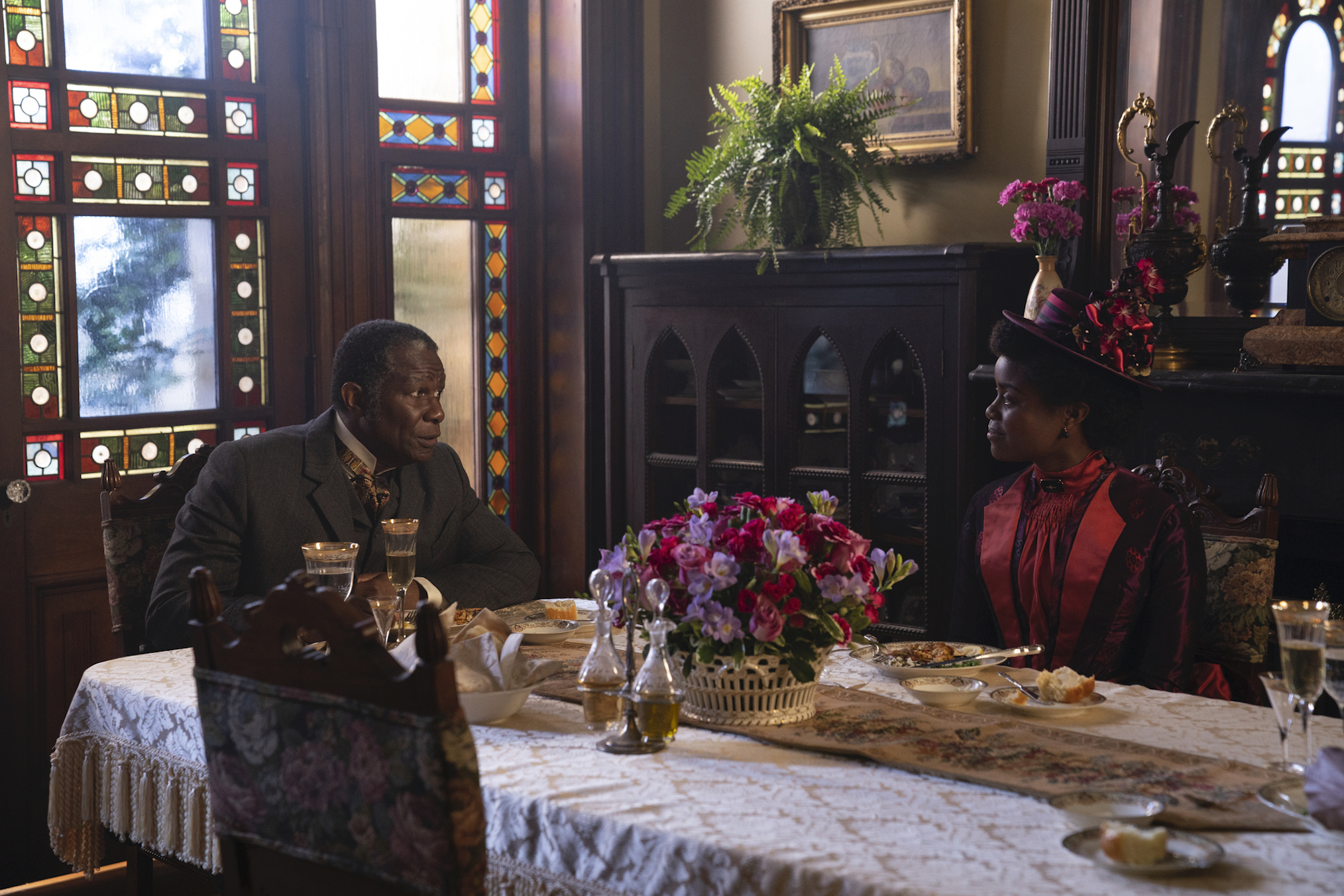
Alison Cohen Rosa/HBO
Peggy’s a talented fiction writer, but she’s also now a political journalist. What about Peggy do you think makes her a natural at that profession?
She’s skilled, she’s trained, she’s educated. She’s never done journalism, but her role as an aware Black woman gives her such an incredible nuance to add to that voice.
If you are a person of an oppressed identity trying to create space for yourself anywhere today, we have nuanced points of view that are probably more interesting than any white historian’s history book. When the mic is passed, it’s gonna be like, “My lived experience mixed with my access to expression and writing is gonna make it so I’m an invaluable resource.” I think Peggy is perfectly poised to share, based on the topics that her and T. Thomas are discovering.
What does playing this woman, on this show, on this platform mean to you?
It means everything. Connecting with Peggy’s story has given me my own sense of belonging. It has empowered me to realize that my experience of Black womanhood has always been part of our story. I have always belonged. The fact that we get to be part of a mass education is incredibly powerful.
One of the most insidious tools of white supremacy, to me, is education as erasure, is the way we can white-out stories. The fact that our story gets to be a part of the resistance to that tool of oppression is really powerful to me, because it reveals us to ourselves. Great remembering connects you to your power source. I think it’s so special that my love for this craft also gets to combine with such a purposeful endeavor.
The Gilded Age, Season 1, Streaming Now, HBO Max
From TV Guide Magazine
Behind the Scenes With Gordon Ramsay: 20 Years of Cooking Up TV Hits
The celebrity chef reflects on redefining culinary television and his fiery journey Hell’s Kitchen to Secret Service. Read the story now on TV Insider.

